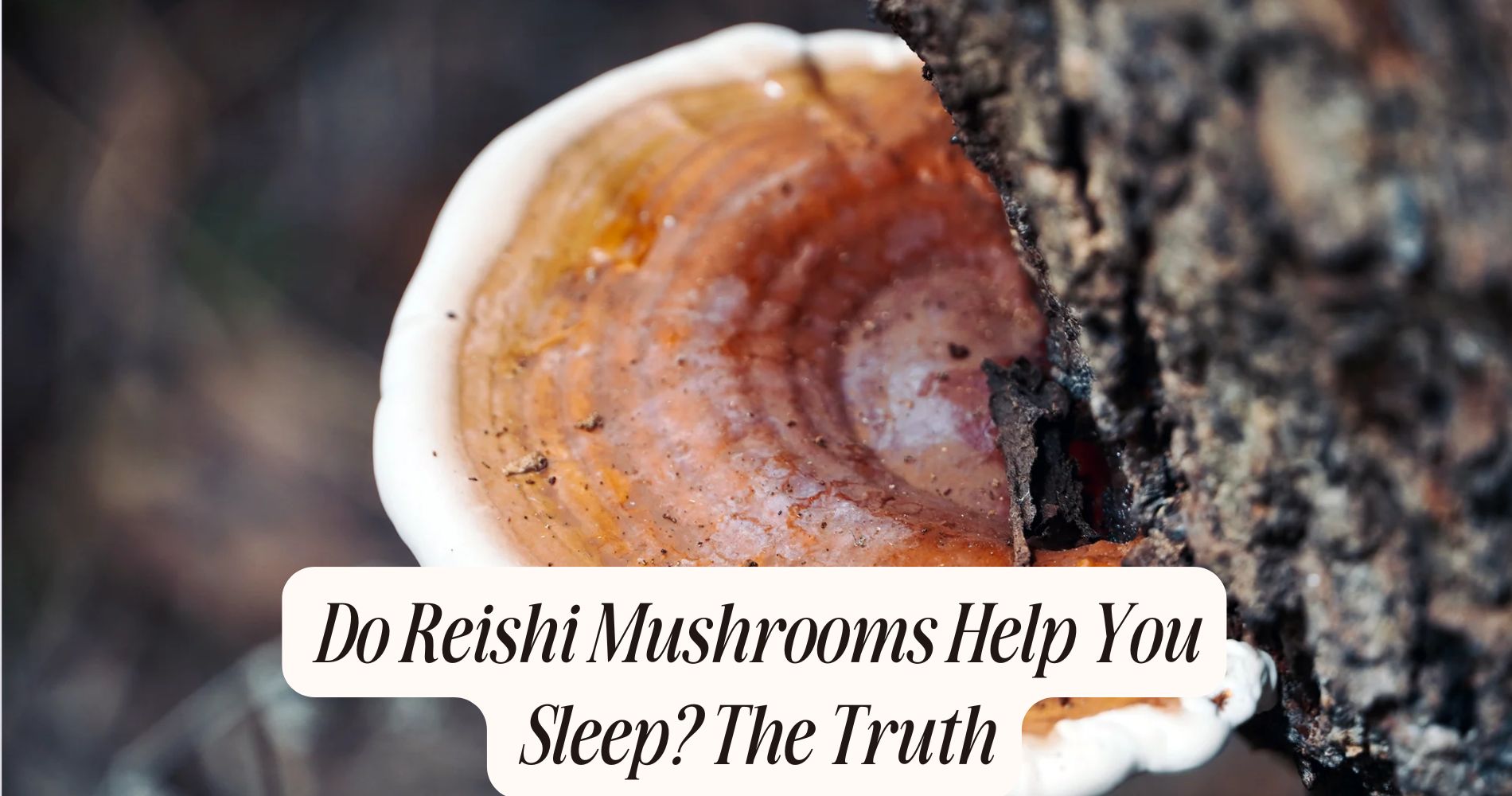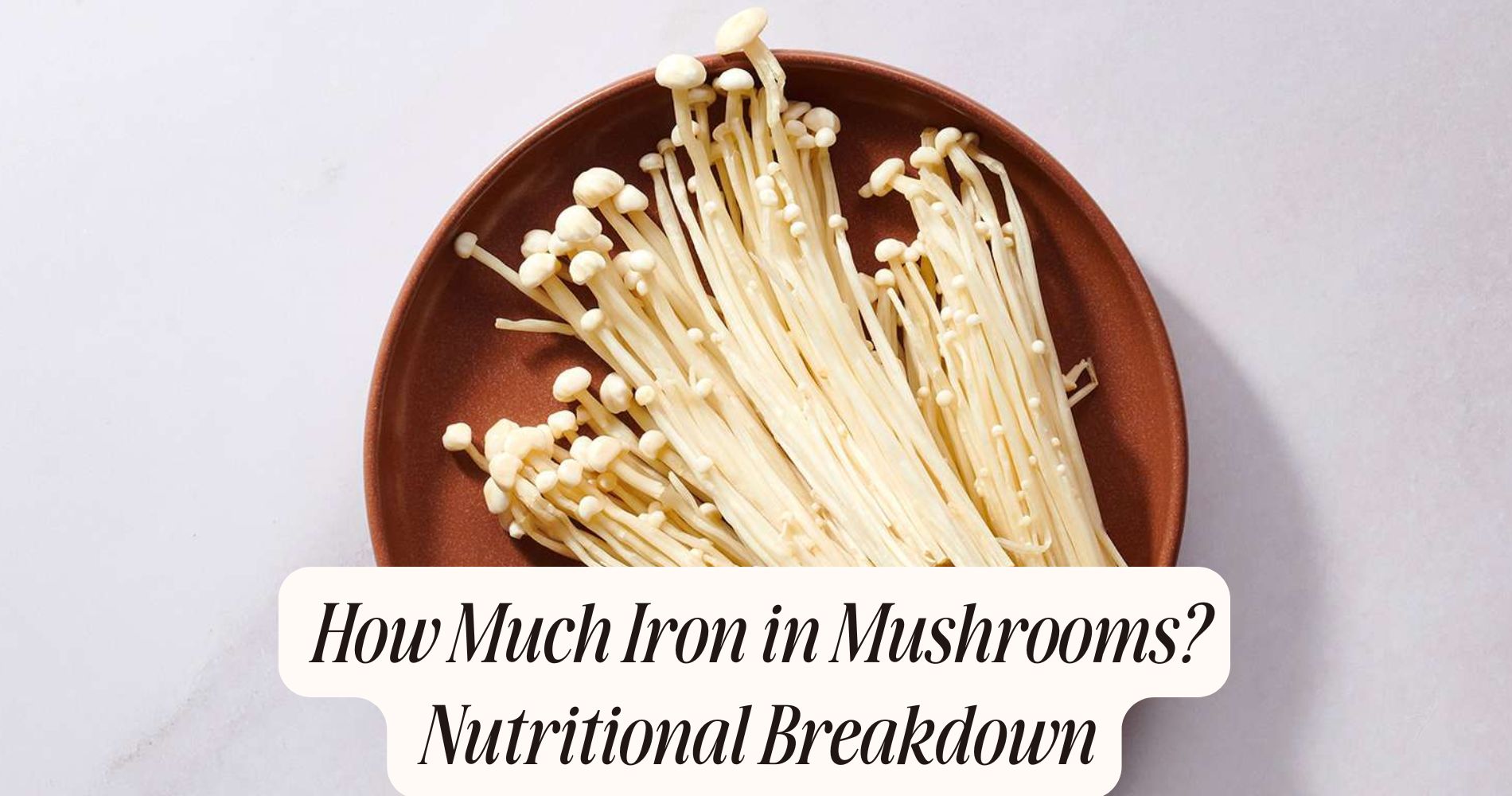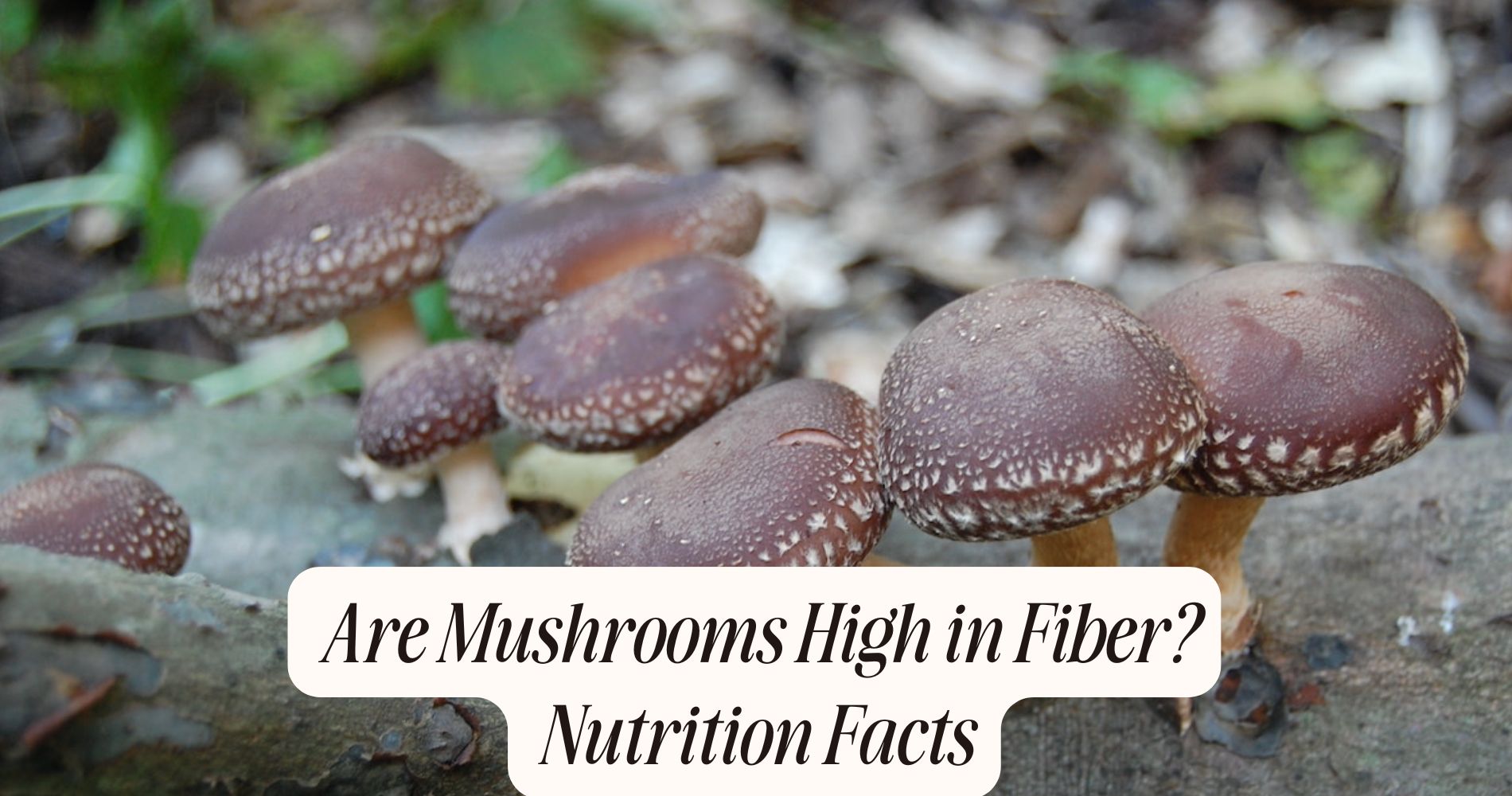
Do Reishi Mushrooms Help You Sleep? The Truth
Do reishi mushrooms help you sleep? Reishi mushrooms might enhance your sleep through their adaptogenic properties, which modulate stress responses and improve sleep quality. These mushrooms contain triterpenes and other compounds that promote relaxation and affect neurotransmitter regulation, leading to reduced sleep latency and increased sleep duration. While individual results may vary, incorporating Reishi into your routine could support a more balanced sleep cycle. To fully understand the intricate benefits Reishi offers, it's invaluable to explore more about its effects.
Understanding Reishi Mushrooms
Reishi mushrooms, known scientifically as Ganoderma lucidum, have been used in traditional medicine for centuries, particularly in East Asia. Their cultural significance is profound, often symbolizing longevity and vigor.
When you examine the nutritional profile of reishi mushrooms, you'll find they're rich in bioactive compounds like polysaccharides and triterpenoids. These compounds have been studied for their potential health benefits, including immune modulation and anti-inflammatory effects.

Clinical insights suggest that these mushrooms may also support overall wellness through antioxidant properties. By understanding the biochemical composition, you can appreciate how reishi mushrooms contribute to health.
Despite their historical reputation, modern research continues to explore their potential applications, underscoring the intersection of ancient practice and contemporary science in their use.
Historical Use in Traditional Medicine
Although often viewed through the lens of modern science, the use of reishi mushrooms in traditional medicine is deeply rooted in history.
You'll find that ancient practices embraced reishi as a cornerstone in herbal remedies. Originating in East Asia, reishi mushrooms, or Ganoderma lucidum, were revered for their supposed health benefits. Evidence suggests practitioners utilized them to enhance wellness, improve longevity, and balance life forces.
In traditional Chinese medicine, reishi was considered the "mushroom of immortality" and was reserved for emperors and elite classes due to its rarity. Its application extended beyond sleep enhancement, addressing various health concerns.
The Science of Adaptogens
When exploring the science of adaptogens, it's vital to understand how these substances interact with the body's stress response system. Adaptogens, such as Reishi mushrooms, modulate the hypothalamic-pituitary-adrenal (HPA) axis and the sympathoadrenal system. They enhance stress resilience by normalizing cortisol levels and stabilizing physiological processes.
Through adaptogen mechanisms, these compounds exert a protective effect against chronic stress, enhancing mental clarity and physical endurance.
Clinical evidence highlights their role in mitigating stress-induced damage by optimizing cellular energy production and reducing oxidative stress. Adaptogens, thus, support homeostasis, enabling your body to better withstand stressors.
Reishi Mushrooms and Stress Reduction
Building on the foundational understanding of adaptogens, Reishi mushrooms stand out for their remarkable stress-reducing properties.
Clinical studies indicate that Reishi's active compounds, such as triterpenoids, bolster stress management techniques by modulating the hypothalamic-pituitary-adrenal (HPA) axis. When the HPA axis functions effectively, your body's physiological response to stress improves, reducing cortisol levels and promoting relaxation.

To achieve ideal stress reduction, consider reishi dosage recommendations. Typically, 1.5 to 9 grams of dried mushroom or its extract is suggested daily, depending on individual tolerance and specific forms available.
You should start at a lower dosage and gradually increase, monitoring your body's response. This approach guarantees you harness Reishi's full potential in stress mitigation, enhancing your overall quality of life.
Immune System Benefits
Reishi mushrooms, renowned for their adaptogenic qualities, also offer significant immune system benefits. They enhance your immune response through their rich polysaccharide content, which stimulates immune cell activity.
For instance, β-glucans in Reishi have been shown to activate macrophages and natural killer cells, essential components of your immune defense. Additionally, the mushroom's antioxidant properties combat oxidative stress, further supporting immune function.
Studies indicate that Reishi's triterpenes contribute to modulating cytokine production, reducing inflammation, and promoting a balanced immune response. By incorporating Reishi into your regimen, you're potentially fortifying your body's defenses against pathogens.
Regular consumption may also contribute to maintaining immune homeostasis, providing a robust shield against external threats while minimizing autoimmune overactivity.
Reishi's Impact on Sleep Quality
Beyond bolstering your immune system, Reishi mushrooms also play a role in improving sleep quality, a benefit that may interest those struggling with insomnia or poor sleep patterns.
Reishi consumption has been associated with enhanced sleep by modulating the stress response and promoting relaxation. The bioactive compounds, such as triterpenes, found in Reishi, have been shown to influence sleep patterns by interacting with central nervous system receptors.

Additionally, these compounds may reduce sleep latency and increase overall sleep duration. Clinical insights suggest that regular intake of Reishi can lead to a more balanced and restorative sleep cycle.
It's important to evaluate the dosage and timing of reishi consumption, as these factors can notably impact its efficacy in improving sleep quality.
Current Research and Findings
As emerging studies continue to shed light on Reishi mushrooms' effects on sleep, the current body of research reveals promising evidence regarding its therapeutic potential.
Current studies indicate that Reishi may influence sleep by modulating neural pathways and enhancing GABAergic activity, a neurotransmitter essential for sleep regulation.
Sleep research also highlights Reishi's adaptogenic properties, which might reduce stress-related sleep disturbances.
In a clinical trial, participants reported improved sleep quality and reduced latency when using Reishi supplements.
Additionally, polysaccharides and triterpenes in Reishi are noted for their role in sleep enhancement, as suggested by preliminary findings.
However, it's important to recognize that while these insights are promising, further robust, large-scale studies are needed to substantiate Reishi's efficacy in sleep promotion conclusively.
Potential Side Effects and Considerations
While Reishi mushrooms offer promising benefits for sleep enhancement, it's important to take into account their potential side effects and individual tolerability. You might experience mild gastrointestinal issues, such as nausea or diarrhea, which typically resolve with dose adjustments.
The recommended dosage varies, but starting with 1.5 to 9 grams of dried mushroom daily is common, ensuring you don't exceed tolerance levels.

Be cautious about potential interactions with medications, particularly anticoagulants or antihypertensives, as Reishi may potentiate their effects. If you're pregnant, nursing, or have underlying health conditions, consult your healthcare provider before incorporating Reishi into your regimen.
Monitoring your body's response and adjusting the dosage accordingly is vital for maximizing benefits while minimizing adverse effects. Always prioritize evidence-based guidance.
Incorporating Reishi Into Your Routine
To effectively incorporate Reishi mushrooms into your routine, start by determining the appropriate form and dosage that suits your lifestyle and health needs. Evidence suggests that Reishi can be consumed as reishi tea, capsules, or extracts.
Clinical insights recommend reishi tea for those who prefer a calming evening ritual, as it may enhance sleep quality. Dosage recommendations typically range from 1.5 to 9 grams of dried Reishi product daily, but it's vital to consult with a healthcare professional to tailor this to your specific condition.
Take note of potential interactions with medications, as Reishi may alter blood pressure or anticoagulant effects. Monitoring your body's response is essential to optimize benefits while minimizing adverse effects.
Integrate Reishi gradually, ensuring it complements your existing health regimen.
Try It the Tasty Way: Super Mushroom Gummies
Looking for a delicious and convenient way to experience the calming power of reishi and more? Meet SUPER MUSHROOM GUMMIES by Well Gummies — your daily wellness boost in a juicy wild berry chew. Each vegan gummy is packed with 10 functional mushrooms, including reishi, lion’s mane, and cordyceps, designed to fuel your brain, sharpen focus, and support your immune system — all without the jitters or crash. Whether you're winding down or gearing up, these gummies help you feel balanced, energized, and mentally clear. Taste the benefits today!
Frequently Asked Questions
Can Reishi Mushrooms Be Combined With Other Natural Sleep Aids?
You can combine reishi mushrooms with other natural sleep aids, creating a synergy in herbal sleep blends. Clinical insights suggest this combination may enhance sleep quality. However, consult a healthcare professional to guarantee safety and efficacy.
How Long Does It Take for Reishi Mushrooms to Improve Sleep?
You might notice sleep quality improvement after consistently taking the recommended reishi mushroom dosage for two to four weeks. Clinical insights suggest patience, as individual responses vary, but adherence to appropriate dosages enhances potential benefits.
Are There Specific Brands of Reishi Supplements Recommended for Better Sleep?
You should explore brand comparisons and check dosage recommendations before selecting a reishi supplement. Clinical insights suggest standardized extracts, often around 1,000-1,500 mg daily, can be effective. Choose reputable brands with third-party testing for ideal results.
Can Reishi Mushrooms Be Consumed During Pregnancy or Breastfeeding?
When considering reishi mushrooms during pregnancy or breastfeeding, you should consult healthcare providers due to safety concerns. Clinical evidence on appropriate dosage recommendations is limited, making professional guidance essential to guarantee the well-being of both mother and child.
Do Reishi Mushrooms Interact With Common Prescription Sleep Medications?
Reishi mushrooms might interact with prescription sleep medications by altering their effectiveness or increasing sedation. Consult your healthcare provider to evaluate potential prescription interactions, considering factors like dosage and individual health conditions, ensuring safe and effective use.
Conclusion
Incorporating reishi mushrooms into your routine could potentially enhance sleep quality due to their adaptogenic properties and stress-reduction capabilities. Current research highlights their ability to modulate the immune system and promote relaxation, which may contribute to improved sleep. However, it's essential to take into account possible side effects and consult healthcare professionals before starting any supplement. While evidence suggests benefits, more clinical studies are needed to fully understand reishi's impact on sleep and overall health.




